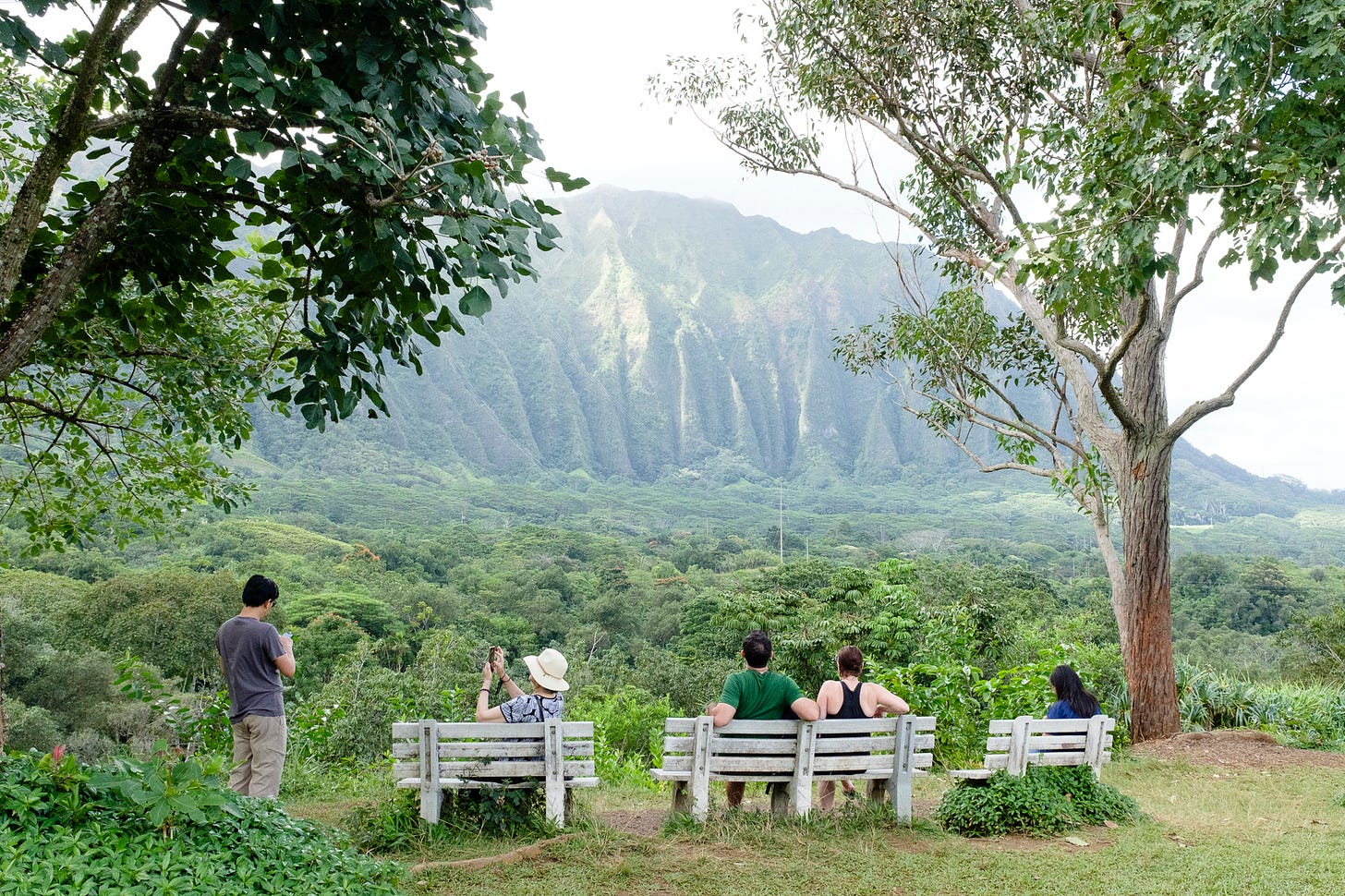Welcome?
It’s not an easy place, this.
(No. 1, a ±4 minute read)
Aloha, as is said without irony or jest here in Hawai‘i.
Aloha kākou—welcome to all of us here. That “us” being the community, the family, those assembled; those of our human collective, the land we inhabit and all that which inhabits it. That is to say everything and all of us, on both sides, on all sides; those of us related to one another by association, blood bonds, our presence on this island earth. Those of us in, and out of the fold. Welcome.
It’s my hope that readers will find those things which I post here useful, maybe even thought-provoking? This newsletter will strive to compliment my published writing and photography (though without the substantial benefit of a professional editor; someone who is paid to bail me out before I splat publicly on the page—apologies in advance; at least there’s spellcheck). It will be somewhat wider in scope than my usual global warming and environmental beat stuff. But that will be here too, that beat. It can’t not be. Not now, not today. Not after this climatic terror-summer of 2023.
For me and too many this summer’s singular affair has been fire on Maui, the fires which unseated the most difficult period I’d previously met in my working life—my time reporting the consequences of 2018’s Camp Fire in the town of Paradise. The destruction of Paradise is coming up on its fifth anniversary and I will be returning to see where things lay five years after its inferno day of horror and grief. I am betting that both shadows yet reside in Paradise; horror and grief. It is hard to understand what was once there and look on what remains, the contours of once forested, heavily populated land, and not see the searing horror of wildfire, which begets misery without fail. Such remembrance constitutes recovery without relinquishment—the manufacture of history.
In addition to facing wildfire, at the moment I am also probing memory with my dear friend and producer Caroline Losneck—capital ‘M’ memory as it pertains to received narratives, memorializing, and monument-making. This as a part of the Mellon Foundation’s Monuments work with the Public Radio Exchange. There are intersections and through-lines regarding memory cropping in our distinct historical investigation which bear heavily on how humankind is facing (or not facing) our climate crisis. I will be poking at those. Our memory of how this earth has been is not its future, this summer has established that.
It’s been an education for me, this summer; often difficult but also full of joy and people doing, or who have done, incredible things. It has been my privilege to spend time with them, interview and get to know them. All have shown themselves to be magnificent people and they have given me inspiration and, sometimes, even optimism. You will meet some of them, and hear them; in print, on a bang-up podcast, and even on the radio. They have helped me maintain hope over the course of a devastating summer and I am in their debt.
Hope isn’t the easiest emotional resource to come by in the world today, and each day that passes often serves to temper the hope I still possess. But it’s out there. Even amidst the ruins of Lāhainā after that terrible fire, it’s out there. It often takes some digging to discern, I’ll cop to that. But it is out there. And I’ll tell you what, I’m not finding it amidst the established powers driving this America, by and large, but among her communities. It is there we will find our future, among our communities and across communities working with other communities. We are, more than ever in human history, I believe, together in what we face. Like it or not.
So stick around? It will aim to beat doom-scrolling Instagram. Crap, it’s got to be better than that….
In the meantime an idea and a quote that have served me and continue to do so. The first, from the Talmud, paraphrased: ‘the work is not ours to finish, but neither is it ours to abandon.’ Though I am not Jewish, this, more and more for me, comes to define the essence of moral action in the face of global warming, and recalling it helps stave off despair. Second, the words of Joseph Déjaques, “We have seen authority at work, and its work condemns it entirely.” I have inked this in the interior of my camera bag, I don’t know that its ever not been right, in the main.
Aloha.
J
Links: Lāhainā, Paradise (hit the full screen button to the left of the image frame on the latter, you may be sorry you did, but that’s the world today)



